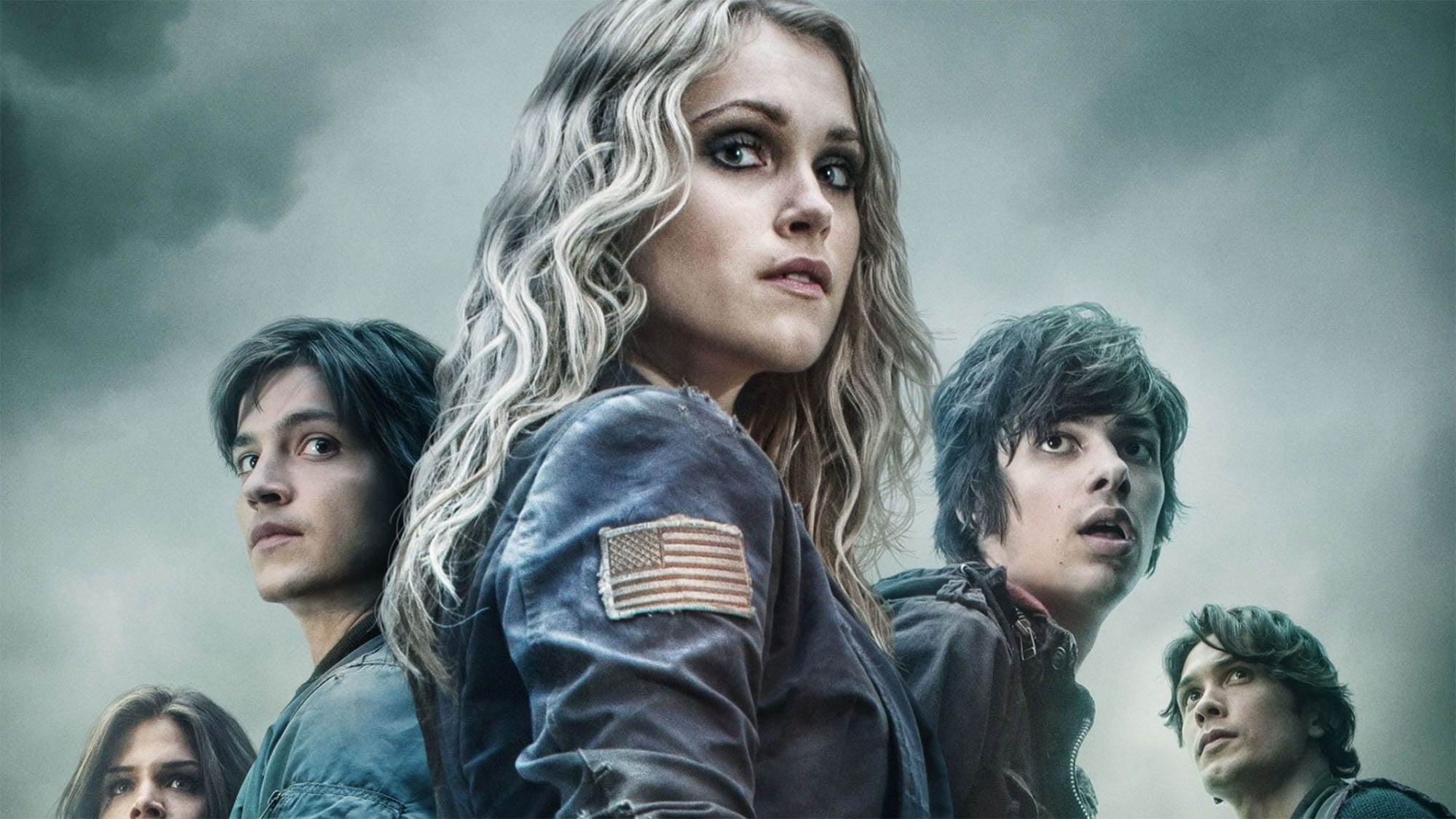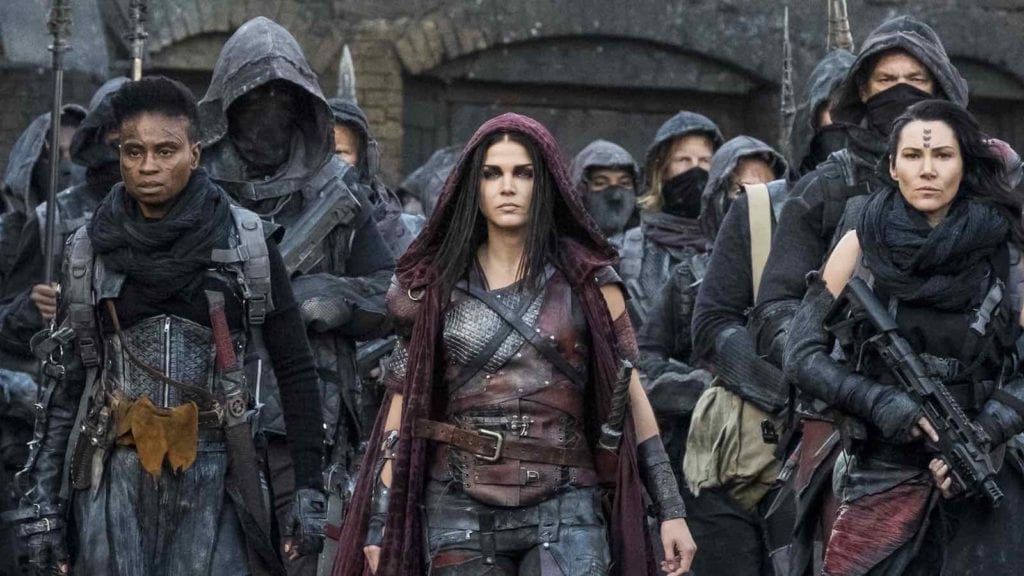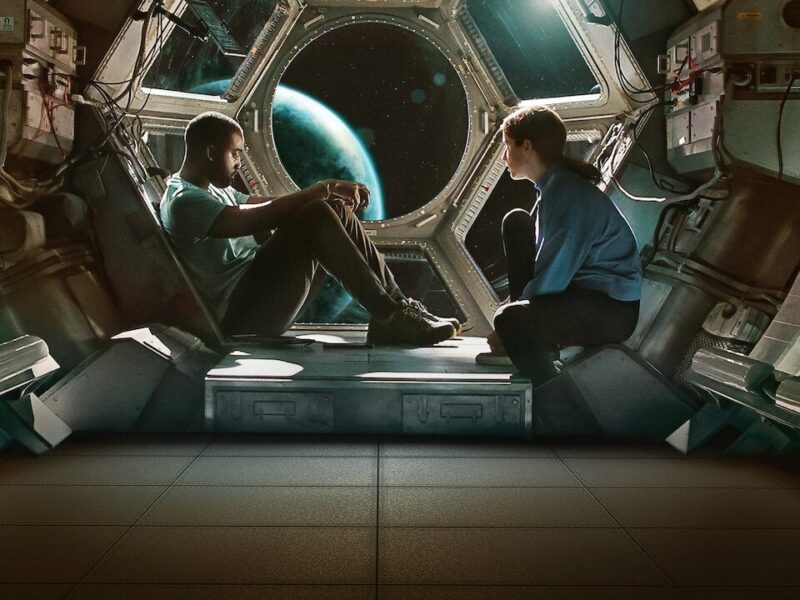
Strong female leads: Celebrating the cast members of ‘The 100’
There are plenty of TV shows currently diving into the complexities of what it takes for a woman to survive.
Both Claws and Good Girls suggest that sometimes women need to step up and break a few laws in order to save their homes, their families, and themselves. Jessica Jones suggests survival is something conjured in the mind and carried out with a physical sense of strength.
Meanwhile, The Handmaid’s Tale proposes the bleak idea that survival can mean little more than presenting a passive endurance to suffering – that existing is just as important as living, no matter what the sacrifices.

Across five seasons, The 100 offers its own harrowing conjecture on what true survival looks like for women and it arguably does it better than many other shows on TV. The 100 can be suffocatingly nihilistic, but the female characters are full of fight and tenacity, even when faced with total ruin. It helps that The 100 features some of the most complex female characters seen on the small screen – particularly for a sci-fi show that focused on an apocalyptic narrative.
Between main characters like Octavia (Marie Avgeropoulos), Clarke (Eliza Taylor), Lexa (Alycia Debnam-Carey), and Raven (Lindsey Morgan), The 100 presents a diverse set of female characters who don’t always do the right thing. But that’s exactly the point.
As The 100 saying goes, “There are no good guys” and that follows through in the crafting of the female characters. They’re often morally ambiguous and given the same freedom as their male counterparts to mess up, be unmerciful, or to murder people when there are other options available.

The characters aren’t solely constructed based on their gender and thankfully aren’t developed using the same old tedious tropes that many other sci-fi shows have a habit of using. Instead, as SyFy pointed out, the women of The 100 are “grounded in a reality not often afforded to women in sci-fi.”
“In the world of The 100, there are no good guys, but it’s pretty revolutionary to see a show committed to doing right by women who behave badly. They’re not cautionary tales, they’re not there simply for the audience to root against. They’re there to pose a question. Why are we rooting for these women? Why are we condemning them? TV rarely asks that of us, especially when it comes to female characters who don’t follow a prescribed mold.”
In S5 of the show, those questions have been amplified louder than ever. Between all the weird mother-daughter relations, cannibalism, AI possession, and gratuitous bug-eating, the women of The 100 have faced some unconscionable challenges with outrageous outcomes.

It’s been fascinating, for instance, to see the patient development of Echo (Tasya Teles) from minor to major character. We see her enter the story as villainous as any character could possibly be, before we’re given a glimpse at her hidden vulnerabilities in S4 when she’s forced to rebuild her entire world.
In an interview with The Fandomentals, Teles explained how exploring the trauma of Echo’s past was an important part of delving deep into the character’s psyche.
“Part of humanizing Echo . . . was trying to figure out who she would be in today’s society . . . We began looking at child soldiers and young terrorists. Finding Echo’s broken heart, and understanding that she must have been brutalized as a child, helped me bring her adult story to life.”

It’s rare for modern sci-fi to accommodate female characters in such a way and to flesh them out quite as deeply. It could be argued that in many genre shows, a female character’s fate is sealed almost as immediately when she’s introduced. And in the most trite, archetypal of manners, she’s either good or bad. Virgin or whore. Hero or villain. Tough girl or damsel. There’s little space for anything deeper.
But as Pop Matters once put it: “The 100 is bursting with dynamic female characters, leaders, stoics, emotional messes, and warriors; here, the full range of human possibility is afforded to the gender that is so often hemmed in by a narrow range of socialized expectations.”
That doesn’t always make for comfortable or easy viewing in The 100, but it does imbue the show with a greater warts-and-all interrogation of what it means to be human. There is no black or white, but a whole bunch of grey in terms of moral ambiguity. These characters are built to do the right thing, even if it doesn’t look like the right thing to do.

The heroines of The 100 can be just about anything. And more often than not, what they become is something we’re all too often unaccustomed to seeing on television.
In a world of such endless threats and violence, it’s as refreshing, for instance, to see characters like Clarke and Raven enjoying multiple sexual partners (without ever being judged for it), as it is to see The 100 avoiding the overused trope of sexual violence against female characters in a bid to lazily provide backstory and motivation.
There’s Octavia brawling with men four times her size and smearing the blood of her enemies on her face and Lexa being as brutal and fearless as she is tender and compassionate.

And there are antagonists like Charmaine Diyoza (Ivana Milicevic) who commits a violent mutiny against her captors to take back her power and command after being sentenced to life imprisonment for her savage former misdeeds.
Whether hero or villain, what all of these female characters (and the rest of those featured on The 100 in big or small ways) share in common is that they’re fascinating in their complexity. They’re complicated and flawed and their moral stance is often far more intricate than it first appears.

What the The 100 suggests in doing so is that survival is neither simple nor pretty and it most certainly isn’t defined by gender – just as humanity shouldn’t be either. Survival is as ugly for women as it is for men and nobody emerges well from the other side of an apocalypse.
It’s rare to see that on TV and it’s particularly rare to see quite so many strong and complex female characters explored with such depth as they are in The 100. It may be one of the nastiest, nihilistic shows on TV, but it remains one of the most compelling for that reason.







